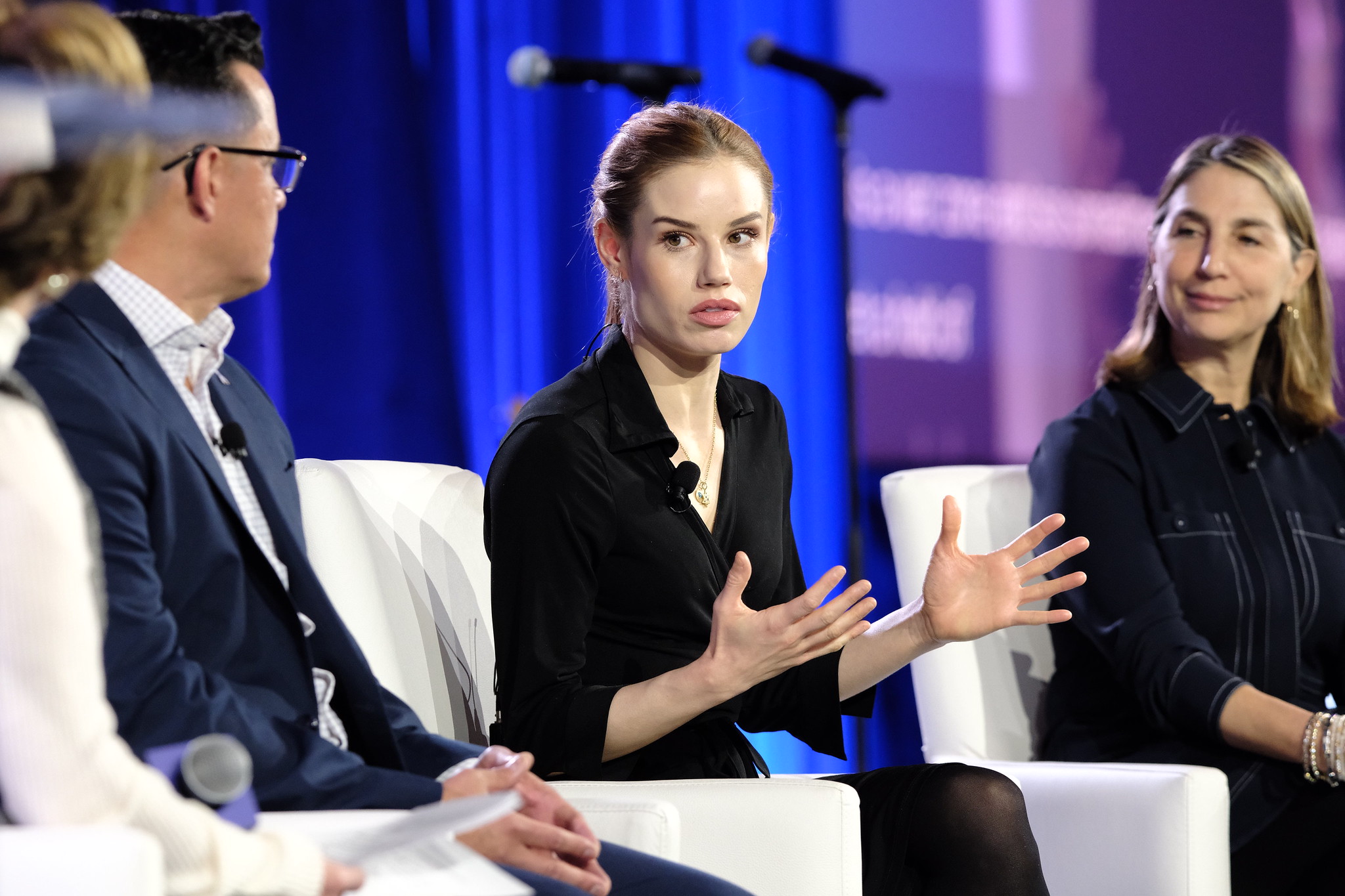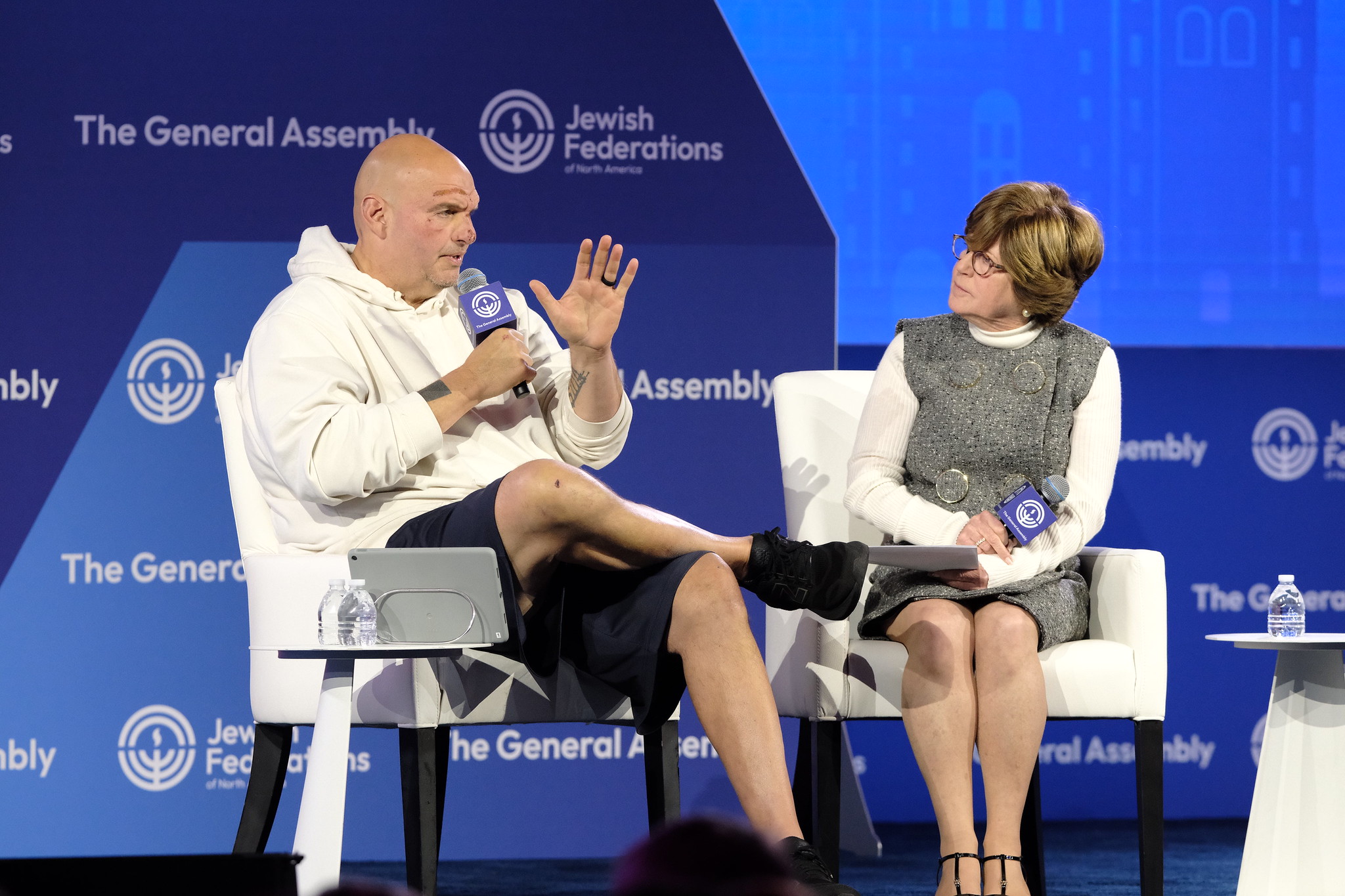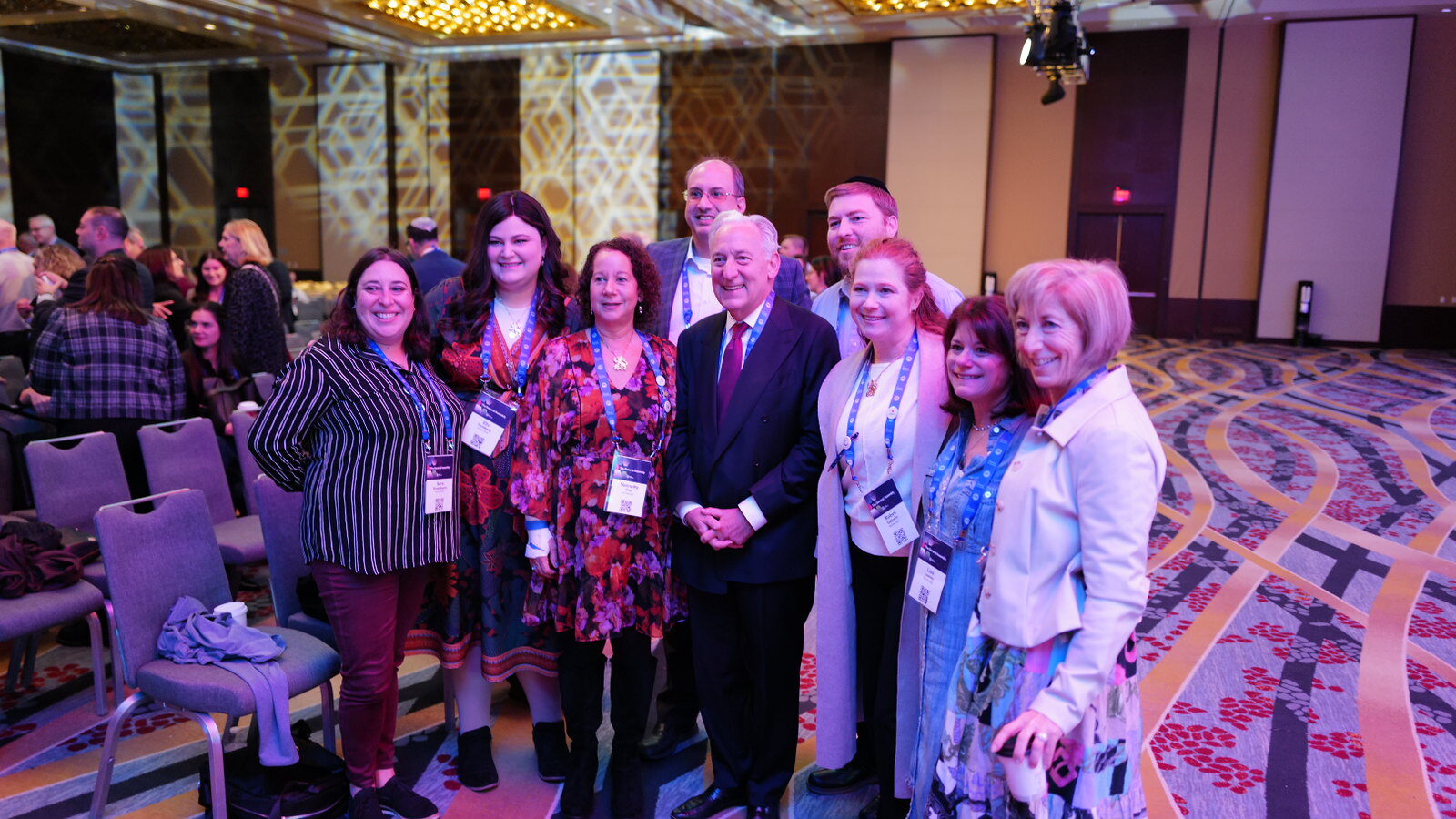JFNA Explores Rebuilding, Security, Antisemitism and the October 8th Jew
Shira Hutt, JFNA Executive Vice President, shares her perspectives on the most pressing issues facing the worldwide Jewish community with The Media Line
Listen:
Charting paths for supporting Israel, enhancing community security, and sustaining a surge of renewed Jewish engagement were the central topics for discussion at the Jewish Federations of North America’s (JFNA) General Assembly held last week in Washington DC.
Jewish communities in the United States are feeling pressure from all sides. Progressive politicians and campus activists accuse Israel of alleged war crimes, while some conservative influencers distance themselves from their Israel-supporting peers, and in some cases, engage in blatantly antisemitic rhetoric.
Eric Fingerhut, president and CEO of JFNA spoke with The Media Line and stressed the need for unity: “It is essential that the fight against antisemitism remain a bipartisan issue, and we’re sadly seeing a growing acceptance on both the right and left of what was once considered unacceptable. Attendees were encouraged by the champions in both parties who spoke at the General Assembly and would use this momentum to continue the fight against antisemitism wherever it rears its head,” he said.

Shira Hutt, JFNA Executive Vice President, speaking at JFNA assembly, Washington, DC, November 2025. (Courtesy: JFNA)
JFNA Executive Vice President Shira Hutt described the gathering as both emotional and necessary. “One of the terms that made its way to the main stage several times during the last few days that we were together with our 2,000 attendees … was that we’re really at an inflection point,” she said. The assembly also offered moments of celebration, as four hostages held in Gaza for two years stood on stage, allowing attendees to “really embrace this miraculous moment where the living hostages are all home.”
It is essential that the fight against antisemitism remain a bipartisan issue, and we’re sadly seeing a growing acceptance on both the right and left of what was once considered unacceptable
Much of the conversation focused on the $908 million emergency campaign launched after October 7, funds deployed “to … address issues across Israel in so many ways,” supporting “hundreds of NGOs and communities.” With the crisis phase complete, federations are now turning to long-term rebuilding. “There’s a lot more work to do, and federations are already deeply engaged in the work of rebuilding Israel … in the months and years ahead,” Hutt said.
Give the gift of hope
We practice what we preach:
accurate, fearless journalism. But we can't do it alone.
- On the ground in Gaza, Syria, Israel, Egypt, Pakistan, and more
- Our program trained more than 100 journalists
- Calling out fake news and reporting real facts
- On the ground in Gaza, Syria, Israel, Egypt, Pakistan, and more
- Our program trained more than 100 journalists
- Calling out fake news and reporting real facts
Join us.
Support The Media Line. Save democracy.


The scale of the challenge—from the northern border to Gaza-area towns and neighborhoods hit by Iranian rockets—requires careful prioritization, a core competency which Hutt attributes to decades of partnership work. “One of the reasons that federations were able to mobilize and respond so effectively and so quickly following October 7th is because federations have been deeply engaged in the work in Israel for decades,” she explained. Coordination across the 141 federations and local relationships continues to guide where support is directed.
The October 7 attacks were followed by a wave of antisemitic incidents worldwide, testing community preparedness. Hutt noted that the Jewish federation system “a couple of years before … embarked on an initiative called Live Secure,” launched after the 2018 Tree of Life massacre, to create professionally operated security programs across federation communities. “There are today 136 professionally run programs,” she said, ensuring swift response to threats.
Security, however, is only one facet of the challenge. Civic engagement and public advocacy have expanded sharply, with federations now balancing safety and visibility. “We’ve had to do more of that,” Hutt said, calling it an area with “even more need, more opportunity.” Federations must help communities protect themselves while remaining fully involved in society, she stressed: “It’s our responsibility as leaders of the Jewish community to do so.”
Misinformation emerged as a central concern at the assembly. Across panels and sessions, delegates grappled with its spread and impact. “I would say that at the root, there’s a tremendous amount of misinformation that is exasperated by, of course, social media,” Hutt said.

Olivia Reingold of The Free Press speaks at the JFNA assembly in Washington, DC, November 2025. (Courtesy: JFNA)
One example came from Olivia Reingold of the Free Press: “She talked about her experience this summer, discovering that the photos that were used to drive the starvation narrative in Gaza were fabricated for this particular story.” Federations aim to counter false narratives while strengthening Jewish literacy and education: “to, again, lean in, be involved, educate people, and also call out anti-Semitism whenever we see it.”
When asked whether she encounters resistance from those outside the Jewish community, she said the challenge often stems less from hostility than from unfamiliarity. “I think that there too, there’s a need for education.” Many people simply lack the basic context to understand the threats Jewish communities are facing. “We can’t assume that they have the information,” she added. That gap represents an entry point and a chance “to bring people in, to engage them, to educate them,” which she believes will strengthen the community “in the months and years ahead.”
Right after October 7th, the surge was at about 40% of Jewish community members who hadn’t previously wanted to engage and connect, really searching for that at this time
Education remains central to long-term resilience. Hutt highlighted initiatives across Jewish life and the role of day schools in engaging entire families: “an incredible way to deepen the engagement of families as an entire unit.” The assembly addressed the surge of renewed Jewish involvement post-October 7. “Right after October 7th, the surge was at about 40% of Jewish community members who hadn’t previously wanted to engage and connect, really searching for that at this time,” she said. While it has eased to about 30%, the surge remains historically high, offering both opportunity and obligation to integrate newcomers into community life.

Senator John Fetterman with Julie Platt at the JFNA assembly in Washington, DC, November 2025. (Courtesy: JFNA)
The “October 8 Jew”—those reconnecting with Jewish identity after witnessing the horrors of October 7—reflects this trend. Engagement spans all age groups, with federations reporting packed programs and waitlists where seats once went unfilled. “People want to join,” Hutt said. “They want to be part of the community. They want to learn and be educated as well.”
A JFNA study backed up this anecdotal evidence, with the 2025 research mirroring that of the previous year. The surge in Jewish involvement after Oct. 7 remains strong across age all groups. Mid-life adults ages 55–74 without children at home increased their engagement from 25% to 29% of the surge, driven by a search for meaning, solidarity, and a culturally or spiritually grounded community. Young adults ages 18–34 held steady at 21% of the surge, looking for accepting, nonpolitical Jewish spaces but often unaware of available resources.
Engagement from parents with children at home dropped from 24% to 19% of this uptick, yet overall, 39% of all parents are now more engaged, with the sharpest rise among families with younger children. Their involvement is fueled by a need for information, support, and community amid rising concerns about antisemitism and their children’s Jewish experiences.
Looking forward, Hutt told The Media Line that federations are focused on sustaining this momentum with sufficient capacity, programming, and leadership. Reflecting on her own role, Hutt said, “I’ve never been more inspired by the work that I personally get to do.” The federation system, she concluded, is uniquely positioned to ensure Jewish life flourishes while confronting its vulnerabilities, “combating anti-Semitism and securing our communities,” so all members can fully participate in community life.

